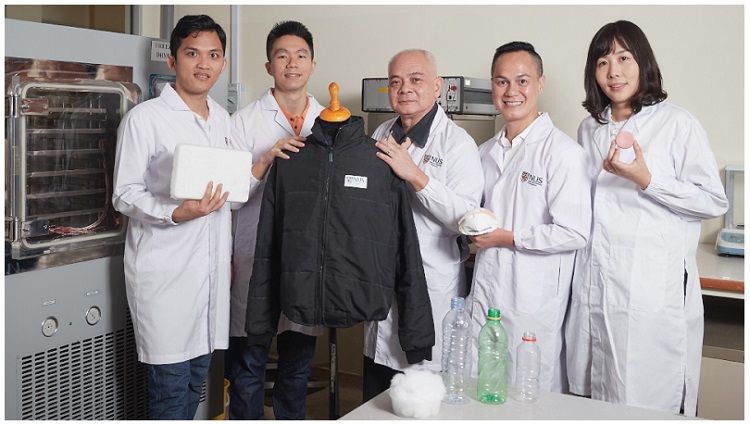This pioneering work has created new avenues for plastic wastes into aerogels which are very versatile and can be easily modified using suitable surface treatments for different applications. Professor Nhan Phan-Thien from the Department of Mechanical Engineering at NUS Faculty of Engineering said, “Our PET aerogels are very versatile. We can give them different surface treatments to customise them for different applications. For instance, when incorporated with various methyl groups, the PET aerogels can absorb large amounts of oil very quickly. Based on our experiments, they perform up to seven times better than existing commercial sorbents, and are highly suitable for oil spill cleaning.”
These aerogels on fire retardant chemical coating can resist high temperatures up to 620°C which is approximately seven times more as compared to conventional firefighting coats and is only 10 % of weight.
Another cutting edge application is that it can absorb carbon dioxide gas and dust particles very quickly from the air when coated with a special amine group.
Associate Prof Duong added: “Masks lined with amine-reinforced PET aerogels can also benefit people living in countries such as China, where air pollution and carbon emission are major concerns. Such masks can be easily produced, and can also potentially be made reusable.”
This great work was published in the scientific journal of Colloids and Surfaces A in August 2018 and the researchers have filed a patent for the novel PET aerogel technology and are investigating methods for collaboration with companies for scaling up for mass production.


